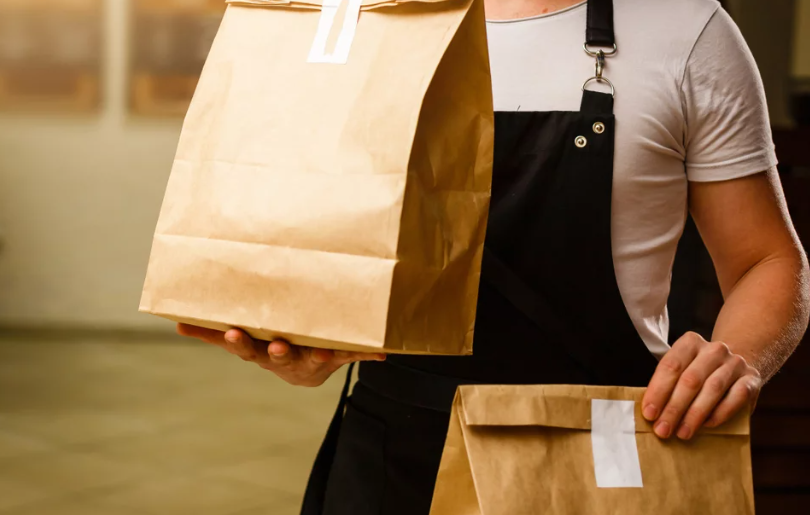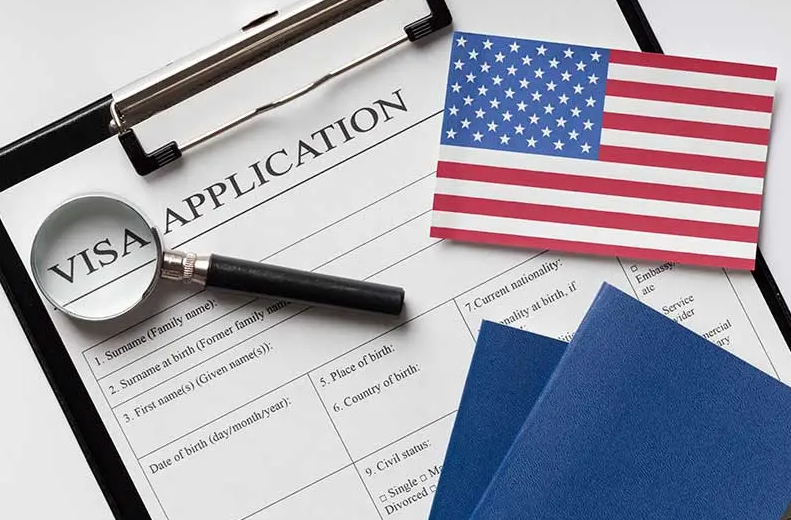For immigrants seeking a fresh start in the USA, food packaging jobs offer a pathway to stability and growth. And yes, visa sponsorship opportunities do exist, making the dream of working in the heart of American food production a tangible reality. From the bustling factories of the Midwest to the sprawling distribution centers of the coasts, the American food industry pulses with a relentless energy, a symphony of production that feeds millions daily. But behind this intricate dance of supply and demand lies a crucial, often overlooked workforce: the food packaging professionals.
These are the individuals who ensure the safety, quality, and timely delivery of the products that grace our tables. More than just a job, it’s a chance to build a stable future, contribute to a vital industry, and potentially, realize the quintessential American dream. Beyond the physical labor, these roles offer a gateway to understanding the intricate processes that keep America fed, a chance to contribute to a vital industry, and, crucially, the potential for visa sponsorship.
Navigating the Visa Sponsorship Opportunities for Food Packaging Jobs
The prospect of securing visa sponsorship for food packaging jobs in the USA can seem like navigating a complex maze. However, understanding the intricacies of the immigration system and taking a strategic approach can significantly increase your chances of success. Let’s delve deeper into the key aspects of this process:
-
Understanding the H-2B Visa: Your Gateway to Food Packaging Opportunities
The H-2B visa is the most relevant non-immigrant visa category for many food packaging jobs. It allows US employers to hire foreign workers for temporary non-agricultural labor. Key characteristics of the H-2B visa include:
- Temporary Nature: The visa is granted for a specific period, typically tied to seasonal or peak production demands in the food industry.
- Employer Sponsorship: You cannot apply for an H-2B visa independently. An employer must file the petition on your behalf.
- Labor Certification Requirement: The employer must obtain a temporary labor certification from the Department of Labor (DOL), demonstrating that:
- There are not enough US workers available to perform the job.
- Hiring a foreign worker will not adversely affect the wages and working conditions of similarly employed US workers.
- Annual Cap: The H-2B visa has an annual cap, which can lead to competition and delays.
- Specific Job Requirements: The job must be temporary, meaning it’s a one-time occurrence, a seasonal need, or an intermittent need.
-
Finding Employers Willing to Sponsor:
Identifying employers willing to sponsor H-2B visas is crucial. Here’s a breakdown of effective strategies:
- Targeting Large-Scale Food Processing and Packaging Companies: These companies often have established visa sponsorship programs and the resources to navigate the process.
- Focusing on Seasonal Food Production: Companies involved in seasonal food processing, such as canning, freezing, or packaging during harvest seasons, are more likely to utilize H-2B visas.
- Researching Companies in Rural Areas: Rural areas often face labor shortages in the food industry, making employers more open to sponsoring foreign workers.
- Directly Contacting HR Departments: Don’t hesitate to reach out to HR departments of target companies, expressing your interest and highlighting your qualifications.
- Utilizing Online Job Boards with Advanced Filters: Use keywords like “H-2B visa sponsorship,” “temporary labor,” and “food processing” on job boards like Indeed, LinkedIn, and specialized industry websites.
- Networking with Industry Professionals: Attend industry events, connect with people on LinkedIn, and join relevant online forums. Networking can lead to valuable connections and job leads.
- Working with Reputable Recruitment Agencies: Some recruitment agencies specialize in placing foreign workers in the food industry and have relationships with employers who offer visa sponsorship.
-
The Labor Certification Process:
The labor certification process is a critical step in obtaining an H-2B visa. Here’s what you need to know:
- Employer’s Responsibility: The employer is responsible for initiating and completing the labor certification process.
- Advertising Requirements: The employer must advertise the job opening in the US labor market to demonstrate that no qualified US workers are available.
- Prevailing Wage Determination: The DOL will determine the prevailing wage for the job, which the employer must pay to the foreign worker.
- Documentation and Compliance: The employer must provide detailed documentation to the DOL, demonstrating compliance with all requirements.
-
The H-2B Visa Application Process:
Once the labor certification is approved, the employer can file the H-2B visa petition with the US Citizenship and Immigration Services (USCIS). The process involves:
- Filing Form I-129, Petition for a Non-immigrant Worker: The employer files this form with USCIS, along with supporting documentation.
- Providing Evidence of Eligibility: The employer must provide evidence that the job meets the H-2B visa requirements.
- Paying the Required Fees: The employer must pay the filing fees associated with the petition.
- Attending a Visa Interview (if applicable): If the petition is approved, you may be required to attend a visa interview at a US embassy or consulate in your home country.
- Obtaining the H-2B Visa: If the interview is successful, you will be granted the H-2B visa, allowing you to travel to the USA and work for the sponsoring employer.
-
Essential Documentation and Preparation:
- Accurate and Up-to-Date Resume: Highlight relevant skills and experience.
- Proof of Education and Training: Provide copies of diplomas, certificates, and training records.
- Letters of Recommendation: Obtain letters of recommendation from previous employers or supervisors.
- Passport and Travel Documents: Ensure your passport is valid and up-to-date.
- Translation of Documents: Translate any documents that are not in English.
- Legal Counsel: Consider consulting with an immigration attorney to ensure compliance with all requirements.
By understanding the H-2B visa process and taking a strategic approach to finding employers, you can increase your chances of securing visa sponsorship for food packaging jobs in the USA.
Eligibility Criteria for the Food Packaging Jobs for Immigrants in the USA with Visa Sponsorship Opportunities
Securing food packaging jobs with visa sponsorship in the USA isn’t just about finding an employer; it’s also about meeting specific eligibility criteria. These criteria are designed to ensure that you possess the necessary skills and qualifications to perform the job effectively and that your employment aligns with US immigration regulations. Let’s break down the essential eligibility components:
-
Job-Specific Skills and Experience:
- Relevant Work Experience: Employers often prioritize candidates with prior experience in food packaging, manufacturing, or related fields. This experience demonstrates your familiarity with industry practices and safety protocols.
- Technical Skills: Depending on the specific role, you may need technical skills related to machine operation, quality control, or inventory management.
- Physical Capabilities: Many food packaging jobs require physical stamina, including the ability to stand for extended periods, lift heavy objects, and perform repetitive tasks.
- Attention to Detail: Accuracy and precision are crucial in food packaging to ensure proper labeling, sealing, and quality control.
- Safety Awareness: A strong understanding of food safety and hygiene practices is essential.
-
H-2B Visa Eligibility Requirements:
- Temporary Employment Offer: The job must be temporary, meaning it’s a one-time occurrence, a seasonal need, or an intermittent need.
- Employer Sponsorship: You must have a bona fide job offer from a US employer willing to sponsor your H-2B visa.
- Labor Certification Approval: Your employer must obtain a temporary labor certification from the Department of Labor (DOL).
- Ability to Perform the Job Duties: You must be able to demonstrate that you have the skills and experience necessary to perform the job duties.
- Intent to Return Home: As an H-2B visa holder, you must demonstrate your intent to return to your home country after the temporary employment period ends.
- No Criminal Record: A clean criminal record is essential for visa approval.
- Valid Passport: You must have a valid passport that will remain valid throughout your stay in the USA.
-
Educational and Training Requirements:
- High School Diploma or Equivalent: While not always required, a high school diploma or equivalent can be advantageous.
- Vocational Training or Certifications: Certifications in food safety, machine operation, or related fields can enhance your qualifications.
- On-the-Job Training: Many employers provide on-the-job training, but having prior training can give you a competitive edge.
-
Language Proficiency:
- English Language Skills: While not always a strict requirement, basic English language skills are essential for communication and safety purposes. Employers may prefer candidates who can understand and communicate effectively in English.
-
Documentation Requirements:
- Resume/CV: A well-crafted resume highlighting your relevant skills and experience.
- Proof of Education and Training: Copies of diplomas, certificates, and training records.
- Letters of Recommendation: Letters from previous employers or supervisors attesting to your skills and work ethic.
- Passport and Visa Documents: A valid passport and any relevant visa documents.
- Translation of Foreign Documents: If your documents are in a foreign language, you must provide certified English translations.
-
Employer-Specific Requirements:
- Background Checks: Employers may conduct background checks to ensure your suitability for the job.
- Drug Testing: Some employers may require drug testing before employment.
- Medical Examinations: In some cases, employers may require medical examinations.
-
Demonstrating Your Value to Potential Sponsors:
- Highlighting Unique Skills: Emphasize any unique skills or experience that sets you apart from other candidates.
- Expressing Enthusiasm and Commitment: Demonstrate your enthusiasm for the job and your commitment to working hard.
- Providing Strong References: Obtain strong references from previous employers or supervisors.
- Being Prepared for Interviews: Practice your interview skills and be prepared to answer questions about your skills and experience.
By understanding and meeting these eligibility criteria, you can significantly increase your chances of securing food packaging jobs with visa sponsorship in the USA. Remember that each employer may have its own specific requirements, so it’s essential to carefully review job postings and communicate with potential employers to ensure you meet all qualifications.
Food Packaging Jobs for Immigrants in the USA with Visa Sponsorship Opportunities
The food packaging industry in the USA is a vast and dynamic landscape, offering a wide array of job opportunities for immigrants with visa sponsorship. These roles span various skill levels and specializations, catering to diverse interests and backgrounds. Let’s delve into the specific types of food packaging jobs that often present visa sponsorship opportunities:
-
Packaging Machine Operator:
Average Salary: $30,000 – $40,000 per year.
Packaging machine operators are the backbone of food processing plants. They set up, operate, and maintain machinery that fills, seals, and labels food products. This role requires a blend of technical skills, attention to detail, and the ability to troubleshoot mechanical issues. Operators ensure that packaging meets quality and safety standards, adhering to production schedules. They often work with automated systems and must be comfortable with technology. Their work is essential in maintaining efficient production flow, minimizing waste, and ensuring products are packaged correctly.
-
Quality Control Inspector:
Average Salary: $35,000 – $45,000 per year.
Quality control inspectors play a crucial role in ensuring that packaged food products meet stringent standards for safety, quality, and labeling. They inspect products at various stages of the packaging process, checking for defects, proper sealing, and accurate labeling. This job requires meticulous attention to detail, a thorough understanding of quality control procedures, and the ability to document findings accurately. Inspectors work closely with production teams to identify and resolve quality issues, preventing defective products from reaching consumers.
-
Labeling Technician:
Average Salary: $28,000 – $38,000 per year.
Labeling technicians are responsible for applying labels to food packages, ensuring accurate information and compliance with regulations. They set up and operate labeling machines, verify label accuracy, and make adjustments as needed. This role demands precision, attention to detail, and the ability to work quickly and efficiently. Technicians must understand labeling requirements, including nutritional information, ingredients, and expiration dates.
-
Warehouse Worker/Material Handler:
Average Salary: $27,000 – $37,000 per year.
Warehouse workers and material handlers are essential for managing the flow of materials and finished products within food packaging facilities. They load and unload trucks, move materials using forklifts or pallet jacks, and organize inventory. This job requires physical stamina, the ability to lift heavy objects, and familiarity with warehouse operations. Workers must adhere to safety protocols and maintain accurate inventory records.
-
Sanitation Worker:
Average Salary: $25,000 – $35,000 per year.
Sanitation workers ensure that food packaging facilities are clean and hygienic, preventing contamination and ensuring food safety. They clean and sanitize equipment, work areas, and storage facilities, following strict sanitation procedures. This role requires attention to detail, knowledge of cleaning chemicals and procedures, and the ability to work in a fast-paced environment. Sanitation workers play a vital role in maintaining a safe and sanitary environment for food production.
-
Packaging Line Supervisor:
Average Salary: $40,000 – $55,000 per year.
Packaging line supervisors oversee the daily operations of packaging lines, ensuring efficient production and quality control. They manage teams of packaging workers, assign tasks, and monitor production schedules. This role requires leadership skills, problem-solving abilities, and a thorough understanding of packaging processes. Supervisors ensure that safety protocols are followed and that production goals are met.
-
Machine Maintenance Technician:
Average Salary: $45,000 – $60,000 per year.
Machine maintenance technicians are responsible for maintaining and repairing packaging machinery, ensuring optimal performance and minimizing downtime. They troubleshoot mechanical and electrical issues, perform preventive maintenance, and replace worn parts. This role requires technical skills, knowledge of machinery and equipment, and the ability to read and interpret technical manuals. Technicians play a vital role in keeping production lines running smoothly.
-
Inventory Control Clerk:
Average Salary: $32,000 – $42,000 per year.
Inventory control clerks manage inventory levels of packaging materials and finished products, ensuring accurate records and preventing shortages. They track inventory movements, conduct physical counts, and reconcile discrepancies. This role requires attention to detail, organizational skills, and proficiency in inventory management software. Clerks play a crucial role in maintaining efficient supply chains and preventing production delays.
-
Food Safety Specialist:
Average Salary: $48,000 – $65,000 per year.
Food safety specialists ensure that food packaging operations comply with all relevant regulations and standards. They develop and implement food safety programs, conduct audits, and train staff on food safety procedures. This role requires a thorough understanding of food safety regulations, knowledge of HACCP principles, and the ability to communicate effectively. Specialists play a vital role in ensuring the safety and quality of packaged food products.
-
Forklift Operator:
Average Salary: $33,000 – $43,000 per year.
Forklift operators transport materials and finished products within food packaging facilities using forklifts. They load and unload trucks, move pallets, and organize inventory. This role requires certification to operate forklifts, physical stamina, and the ability to work safely in a warehouse environment. Operators play a critical role in maintaining efficient material flow.
-
Production Planner:
Average Salary: $50,000 – $68,000 per year.
Production planners schedule and coordinate production activities, ensuring that packaging lines operate efficiently and meet production targets. They analyze production data, develop production plans, and monitor inventory levels. This role requires analytical skills, organizational skills, and the ability to communicate effectively. Planners are vital to the efficiency of food packaging operations.
By understanding the diverse range of food packaging jobs available, immigrants can identify opportunities that align with their skills and experience, increasing their chances of securing visa sponsorship and building a successful career in the USA.
Key Factors for Considerations When pursuing food packaging jobs with visa sponsorship in the USA
When pursuing food packaging jobs with visa sponsorship in the USA, several key factors demand careful consideration. These factors extend beyond simply finding a job; they encompass legal, logistical, and personal aspects that can significantly impact your experience. Let’s explore these considerations in detail:
-
Visa Sponsorship Availability and Reliability:
- Employer Commitment: Not all employers who advertise “visa sponsorship” follow through. Verify the employer’s track record and commitment to the H-2B visa process.
- Visa Cap and Processing Time: The H-2B visa has an annual cap, and processing times can vary. Understand the potential for delays and plan accordingly.
- Legal Compliance: Ensure the employer’s visa sponsorship practices comply with all relevant US immigration laws. Working with reputable employers and legal counsel is essential.
-
Job Security and Stability:
- Seasonal vs. Permanent Positions: Many food packaging jobs are seasonal, tied to harvest or peak production periods. Understand the job’s duration and potential for long-term employment.
- Company Stability: Research the company’s financial stability and reputation. A stable employer offers greater job security.
- Contractual Agreements: Carefully review employment contracts, including terms of employment, wages, and benefits.
-
Location and Cost of Living:
- Geographic Location: Food packaging jobs are often located in rural areas or near food processing plants. Consider the location’s accessibility, amenities, and cultural environment.
- Cost of Living: Research the cost of living in the job’s location, including housing, transportation, and daily expenses. Ensure that your wages will cover your living costs.
- Access to Services: Consider your access to essential services, such as healthcare, transportation, and community support.
-
Cultural Adjustment and Language Barriers:
- Cultural Differences: Be prepared for cultural differences in the workplace and community. Embrace the opportunity to learn and adapt.
- Language Proficiency: While some employers may offer language assistance, basic English proficiency is essential for communication and safety. Consider language training before or after arrival.
- Community Support: Seek out immigrant communities or support organizations that can provide assistance and guidance during your transition.
-
Legal and Financial Considerations:
- Immigration Attorney: Consulting an immigration attorney can provide invaluable guidance throughout the visa process.
- Financial Planning: Plan for potential expenses, including visa fees, travel costs, and initial living expenses.
- Tax Obligations: Understand your tax obligations as a foreign worker in the USA.
-
Safety and Working Conditions:
- Workplace Safety: Food packaging jobs can involve physical labor and potentially hazardous machinery. Prioritize workplace safety and ensure the employer adheres to safety regulations.
- Working Hours and Conditions: Understand the typical working hours and conditions, including potential for overtime or shift work.
- Employee Rights: Familiarize yourself with your employee rights and protections under US labor laws.
-
Personal and Professional Growth:
- Career Advancement: Consider the potential for career advancement within the company or industry.
- Skill Development: Seek opportunities to develop new skills and enhance your professional qualifications.
- Personal Fulfillment: Choose a job that aligns with your personal and professional goals, providing a sense of fulfillment and purpose.
-
Housing and Transportation:
- Housing Options: Research housing options in the job’s location, considering affordability and proximity to work.
- Transportation: Plan your transportation to and from work, especially if the job is located in a rural area.
- Driver’s License: If you plan to drive, obtain a valid US driver’s license.
-
Healthcare Access:
- Health Insurance: Understand your healthcare coverage and options as a foreign worker.
- Access to Medical Care: Ensure access to quality medical care in the job’s location.
-
Family Considerations:
- Family Sponsorship: If you plan to bring your family to the USA, understand the visa options and requirements for family members.
- Family Support: Consider the availability of family support networks in the job’s location.
-
Documentation and Record Keeping:
- Maintain Accurate Records: Keep copies of all visa documents, employment contracts, and financial records.
- Compliance with Regulations: Adhere to all US immigration regulations and reporting requirements.
By carefully considering these factors, you can make informed decisions and increase your chances of a successful and fulfilling experience in food packaging jobs with visa sponsorship in the USA.
Conclusion
Food packaging jobs offer a viable pathway for immigrants seeking stability and opportunity in the USA. While securing visa sponsorship can be challenging, the rewards of a fulfilling career and a chance to build a new life make the effort worthwhile. By leveraging online resources, networking effectively, and seeking professional guidance, immigrants can find their place in the heart of the American food industry.






